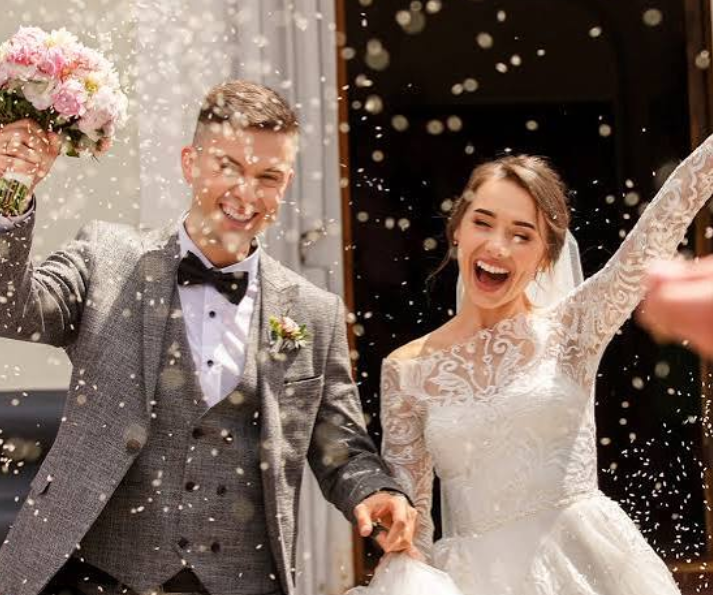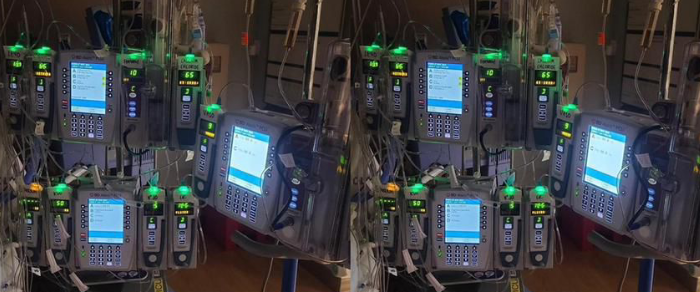
“Where Did the Wedding Gifts Go? Nigerians Lament the Disappearance of a Once Cherished Tradition

There was a time when weddings were not just about dancing, eating, and snapping pictures for Instagram. They were about community, about togetherness, and about the tangible exchange of love and goodwill through wedding gifts. But that seems to be fading fast. A social media post by a Nigerian user, Dr. Dream Girl, who goes by the handle @AimaMoh on X (formerly Twitter), has sparked nostalgia and conversation across the internet after she expressed sadness over how people no longer bring gifts to weddings. Her words struck a chord with many who remember the joy of attending ceremonies laden with wrapped presents, bags, and envelopes of goodwill. “The way no one brings gifts to weddings anymore breaks my heart. I vividly remember as a child my mom sending me up to the bride and groom table to drop our gift among the many in exchange for a souvenir at receptions. No one does that anymore and it's really so sad,” she wrote.
Her tweet quickly gained traction, garnering hundreds of comments and thousands of likes from Nigerians who shared similar sentiments. It wasn’t just about the gifts themselves but about what they represented — an era when weddings were more communal and heartfelt, when attending meant being part of something larger than oneself. Many users reminisced about the days when parents carried boxes, coolers, or envelopes, walking proudly to the couple’s table to drop their contribution, often while being cheered by family and friends. It wasn’t merely a transaction; it was a gesture of goodwill and connection.
Today, that tradition seems to have disappeared almost entirely. Many attendees now show up to weddings dressed in their finest, clutching only their phones for pictures and their purses for the after-party. Gifts, both big and small, have been replaced by online transfers, QR codes, or simply good wishes. Some argue that modern weddings have become more about show than sentiment — more about aesthetics than affection. The physical act of giving, that moment of walking up to the couple with a neatly wrapped present, has been replaced by silent digital gestures that leave no memory, no story, and no tangible keepsake.
For older generations, this shift feels like a loss of essence. Weddings were once a cultural celebration of giving, and gifts symbolized blessings, prayers, and the sharing of joy. It didn’t matter if the present was a set of plates, a bedsheet, or a pot — what mattered was the thought behind it. Those gifts often formed the foundation of a couple’s new home, tangible reminders of love and community support. But now, as many users pointed out under @AimaMoh’s post, most couples have become so modernized that they create digital gift registries or prefer “cash gifts only,” often discouraging physical presents altogether.
One user commented, “Nowadays, if you bring a gift box, they’ll look at you like you didn’t get the memo. Everyone wants transfers.” Another reminisced, “I remember those days too. My mom always bought those fancy wrappers just to present our gift well. Now, people just post account numbers on invitation cards.” The conversation opened a window into how technology and modernization have reshaped even the most intimate of social traditions.
However, not everyone sees the change as entirely negative. Some believe that digital gifting is simply an evolution of the same culture — a more efficient way of showing support in today’s fast-paced world. With rising costs, logistics challenges, and the unpredictability of what newlyweds actually need, many people find monetary gifts more practical. “It’s not that people have stopped giving,” one user countered. “They just give differently now. Instead of a blender or bedspread, they send cash or gift cards.”
Still, others argue that what’s missing is not the physical gift itself but the emotion and community that surrounded the tradition. Back then, a wedding was a collective event. Families, friends, and neighbors came together not just to celebrate but to contribute. It was a form of shared responsibility, where everyone felt part of the couple’s journey. Children like @AimaMoh remembered being sent to drop the family’s gift as a symbolic act — a small but proud role in the celebration. That sense of belonging, that rhythm of cultural exchange, seems to have faded.
Sociologists and cultural observers have long noted this shift. With urbanization, smaller family units, and the rise of individualism, communal traditions in Nigeria — especially those surrounding weddings, naming ceremonies, and burials — are being replaced by more individualized practices. Social media aesthetics and “big weddings” have further emphasized the performance aspect of ceremonies over the communal aspect. Couples now focus on photography, decorations, and influencer coverage, while guests focus on dressing their best for the cameras. Somewhere between hashtags and hall decor, the spirit of gift-giving got lost.
Another interesting aspect highlighted in the discussion is how souvenirs have changed too. In the past, guests received modest tokens — keyholders, plates, or cups — in exchange for their gifts. It was an understood part of the social contract. Today, souvenirs have become a competition of extravagance, with people expecting branded items or nothing at all. The balance between giving and receiving has shifted, leaving many nostalgic for simpler times.
For those who grew up attending traditional weddings in the ’80s and ’90s, the sight of a table piled high with gifts was a defining image. It was both a visual display of love and a symbol of abundance. Children would help carry wrapped presents, elders would offer prayers, and the couple would smile with gratitude. Now, that image has largely disappeared, replaced by sleek gift tables holding just flowers and candles for decoration. The new generation may never experience that joy of seeing tangible tokens of love fill a hall.
Yet, there’s hope that this lost tradition might find its way back in some form. A few younger couples have begun to revive the culture of physical gifting by encouraging their guests to bring something tangible — no matter how small. Some even incorporate a “gift corner” into their reception decor, just like in the old days. The aim, they say, is to bring back that sense of warmth and human connection that money transfers can’t replicate.
Ultimately, @AimaMoh’s heartfelt post has done more than just lament a lost custom — it has sparked a national reflection on how modernity and nostalgia intersect in today’s Nigerian weddings. Her memory of walking to the couple’s table as a child is more than just a sentimental anecdote; it’s a reminder of how traditions anchor our sense of community. In a world where love is often filtered through screens and hashtags, perhaps there’s something sacred in the simple act of showing up with a wrapped gift and a sincere heart.
As one commenter beautifully put it, “Maybe we stopped bringing gifts, but maybe we also stopped bringing love.” And maybe, just maybe, it’s time to bring both back.


